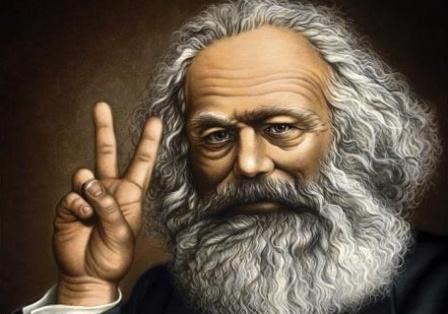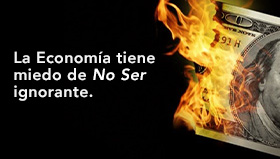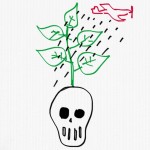Dear readers, several times in our latest newsletters, I have been quoting various concepts taken from Marx, for which I wanted to make a few comments.
When I was young, saying “Marx” in the dinner table was like declaring oneself left-winged and standing against the political values of the family. Not because my family preferred right-winged ideals, not at all, but because they –the adults and bearers of truth– were told Marx was bad… but, have they ever read him?, of course not. It has always been said by the media, at school, or by our bosses at work, always from the upside down, that Marx was a synonym for barbarism, left-wing ideals and politic chaos…
Luckily, our generation tends to listen to both sides of the story. At university, as happens to several of us, they give us Marx’s material to read, they put it in context before making any opinion. They explain him within a society immersed in work, totally dependent of the clockwork jobs the industrial revolution had to offer, a dehumanized society made on purpose in order to keep it under control. Those who have no capital to invest, the only thing they can invest (and sell in order to survive) is their work force. And so it is… the situation in which we are in.
Thus, one starts to read Marx and thinks… bollocks!… this guy was not that wrong at all. (Watch it! there are certain extreme stances which one must absorb within the context mentioned above, which would be like understanding the anger at that point in time)… But, what if that anger is still alive today but camouflaged? Aren’t we still tied up to a system which forces us to sell ourselves in order to pay the bills?
In the 25 years I have lived in my country, I keep on seeing how the middle class shrinks, how the lower class keeps on getting wider and wider, and how the higher class perpetuates itself in time…
Anyway, this will always be a space for debate, and trying not to leave loose ends, a friend of mine from the south of Argentina, Axel, has sent me a short documentary (regretfully only in Spanish) from a TV Program called PHILOSOPHY HERE AND KNOW from José Pablo Feinmann –a well know philosopher- who explains succinctly several points we touch in ours newsletters:
How does the capitalist gain his profit?
Where does the capitalist get his original capital?
Which is the secret of goods?
Is everything goods?
The program is excellent and I wanted to share it with you… (I leave conclusions, political or not, to you; but in order to form them we need to know what we are talking about)
“By the end of the nineteenth century, Juan Pío Acosta lived in the Uruguayan border with Brazil.
His job forced him to come and go, from town to town, through those solitudes.
He travelled in a horse cart, with eight other people from first, second and third class.
Juan Pío always bought the third class ticket, which was the cheapest.
He never understood why different prices existed. Everybody travelled the same way, those who paid more and those who paid less: tight together with one another, munching dust, shacked by the constant jolting.
He never understood why, until a bad day of winter, the cart got stuck in the mud. And then, the foreman commanded:
– Those from first class stay on top!
– Those from second class get down!
– And those from third class… start pushing!
Eduardo Galeano. Los hijos de los días (The sons of the days). Siglo Veintiuno Editores, 2012. Buenos Aires. Page 68.
Huge hug,
Brian Longstaff.-






















Axel NAzaruk Jun 04 , 2012 at 04:34 PM /
Feinmann UN MOUSTRO! Galeano PFFF
quedo muy bueno el boletín, mis felicitaciones.
Hugo Caneda Jun 07 , 2012 at 03:54 PM /
sip, carlitos un grosso… fue el mejor analista del capitalismo del s. XIX, su teoria de analisis historico, es decir el materialismo historico es de lo mejor q dio la especie hasta el momento…
Gutty Ruiz Teira Jun 07 , 2012 at 09:18 PM /
Buenisimo este boletín, una sola corrección al respecto: Es José Pablo Feinman, no Ricardo.
Brian Longstaff Jun 08 , 2012 at 10:44 AM /
Gracias! Corregido.-